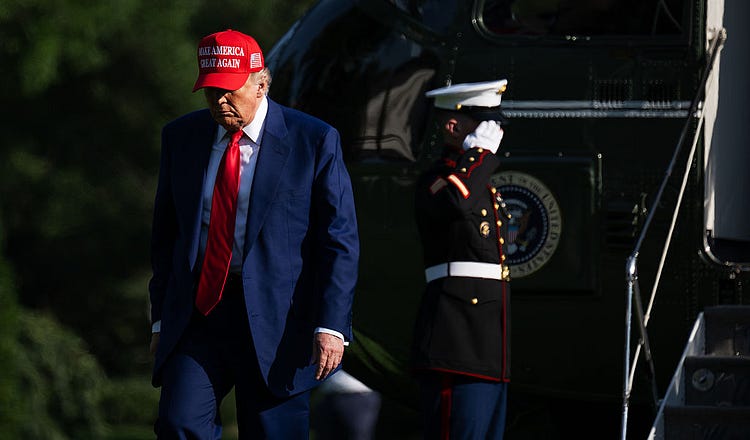
What to make of Saturday’s “surgical strikes” on Iranian nuclear installations? Ask Vice President Vance: “We had an incredibly targeted, precise surgical strike on the nuclear facilities that are the target of the American operation,” he declared on Sunday. It was, he later added “a very precise, a very surgical strike tailored to an American national interest. And that national interest is Iran cannot have a nuclear weapon.”
Americans, and especially Republicans, have long relished the term surgical strike, and it’s easy to understand why. Standards of surgery are exceptionally high in the United States, just as tolerance of military casualties is relatively low. The notion is therefore alluring that one can resolve an international problem—especially an intractable one such as Iran’s long-standing ambition to acquire nuclear weapons—with a single, swift, surgical procedure.
Ironically, as Richard Nixon’s former speechwriter William Safire pointed out nearly 40 years ago, the term surgical strike originated as left-wing satire. The first use of the phrase, according to Safire, was in an article by Richard Barnet in Harper’s Magazine in November 1971. “Even [in] the language of the bureaucracy,” Barnet wrote, “the ‘surgical strike’ for chasing and mowing down peasants from the air by spraying them with 8,000 bullets a minute—takes the mystery, awe, and pain out of violence.”
I thank God that the vacuous term ‘de-escalation’ has now been left to the Europeans, and that peace through strength is back.
There was nothing surgical about the American use of air power in Vietnam. According to the diary of Nixon’s chief of staff, H.R. Haldeman, Henry Kissinger also used the phrase at around that time, though the surgical strike he had in mind was a possible Soviet attack on Chinese nuclear facilities.
Only with the advent and rapid development of precision weaponry such as guided missiles in the 1980s did the term lose its pejorative connotation. By the time Safire was writing—just after Ronald Reagan’s administration had struck Libyan targets in retaliation for the West Berlin discotheque bombing of April 1986—surgical strike had taken on the modern meaning used by Vice President Vance on Sunday. As with the revival of the slogan “peace through strength,” this is one of those conscious echoes of Reaganism that befuddle those who would misrepresent the second Trump administration as isolationist.
Last week, when I was explaining why I expected Trump to strike the Fordow fuel enrichment plant, I pointed out that, despite frivolous jokes about the TACO (Trump Always Chickens Out) trade, Trump Enjoys Surgical Strikes (TESS). We saw that three times in his first term: in April 2017, when he dropped the “Mother of All Bombs” on Afghanistan; a year later, when he ordered missile strikes on Syria in response to a suspected chemical weapons attack by the Assad regime; and in January 2020, when he authorized the assassination of commander of the Quds Force of the Islamic Revolutionary Guard Corps (IRGC), Qasem Soleimani. The relish with which Trump announced the strikes against Fordow, Natanz, and Isfahan on Saturday night was characteristic. “A full payload of BOMBS was dropped on the primary site, Fordow,” he enthused. “All planes are safely on their way home. . . . NOW IS THE TIME FOR PEACE! Thank you for your attention to this matter.”
For more on Trump’s decision to strike Iran, read the historian Victor Davis Hanson’s latest Free Press essay:
Swift, decisive intervention, leading to peace—and at the same time restoring American deterrence: “ANY RETALIATION BY IRAN AGAINST THE UNITED STATES OF AMERICA WILL BE MET WITH FORCE FAR GREATER THAN WHAT WAS WITNESSED TONIGHT,” as he put it in a follow-up post. This is the essence of the perfect surgical strike.


